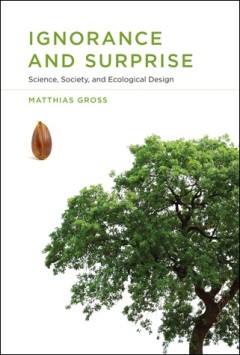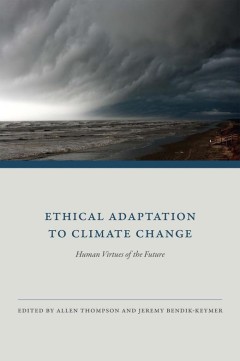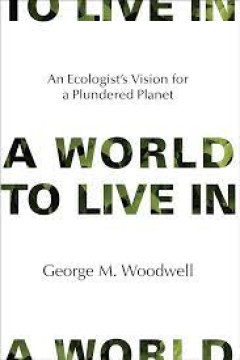Filter by

Ignorance and Surprise: Science, Society, and Ecological Design
In this work, Matthias Gross examines the relationship between ignorance and surprise, proposing a conceptual framework for handling the unexpected and offering case studies of ecological design that demonstrate the advantages of allowing for surprises and including ignorance in the design and negotiation processes.OCLC-licensed vendor bibliographic record.
- Edition
- -
- ISBN/ISSN
- 9780262265911
- Collation
- 1 online resource (xii, 240 pages) :illustrations, maps.
- Series Title
- -
- Call Number
- -

Nature by design :people, natural process, and ecological restoration
Ecological restoration is the process of repairing human damage to ecosystems. It involves reintroducing missing plants and animals, rebuilding soils, eliminating hazardous substances, ripping up roads, and returning natural processes such as fire and flooding to places that thrive on their regular occurrence. Thousands of restoration projects take place in North America every year. In Nature b…
- Edition
- -
- ISBN/ISSN
- 9780262275378
- Collation
- 1 online resource (xv, 341 pages) :illustrations, maps
- Series Title
- -
- Call Number
- -

Ethical adaptation to climate change :human virtues of the future
Predictions about global climate change have produced both stark scenarios of environmental catastrophe and purportedly pragmatic ideas about adaptation. This book takes a different perspective exploring the idea that the challenge of adapting to global climate change is fundamentally an ethical one.OCLC-licensed vendor bibliographic record.
- Edition
- -
- ISBN/ISSN
- 9780262301541
- Collation
- 1 online resource
- Series Title
- -
- Call Number
- -

A world to live in :an ecologist's vision for a plundered planet
A century of industrial development is the briefest of moments in the half billion years of the earth's evolution. And yet our current era has brought greater changes to the earth than any period in human history. The biosphere, the globe's life-giving envelope of air and climate, has been changed irreparably. In A World to Live In, the distinguished ecologist George Woodwell shows that the bio…
- Edition
- -
- ISBN/ISSN
- 9780262333689
- Collation
- 1 online resource (xvi, 227 pages)
- Series Title
- -
- Call Number
- -

Streams of revenue :the restoration economy and the ecosystems it creates
"One of the most influential, and perhaps surprising,developments in environmental policy in recent decades is the idea that we can protect the environment from the negative impacts of economic development by making environmental protection itself more economic. The goal is to reduce environmental harm not by preventing it, but by pricing it. Using stream mitigation banking, that is the market …
- Edition
- -
- ISBN/ISSN
- 0262359073
- Collation
- 1 online resource.
- Series Title
- -
- Call Number
- -
 Computer Science, Information & General Works
Computer Science, Information & General Works  Philosophy & Psychology
Philosophy & Psychology  Religion
Religion  Social Sciences
Social Sciences  Language
Language  Pure Science
Pure Science  Applied Sciences
Applied Sciences  Art & Recreation
Art & Recreation  Literature
Literature  History & Geography
History & Geography